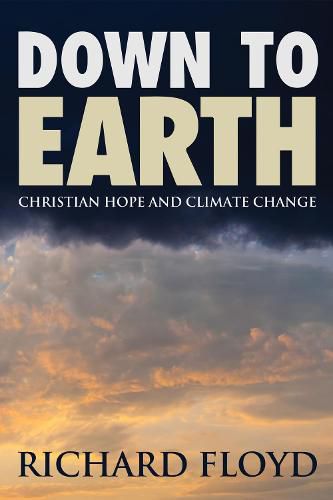Readings Newsletter
Become a Readings Member to make your shopping experience even easier.
Sign in or sign up for free!
You’re not far away from qualifying for FREE standard shipping within Australia
You’ve qualified for FREE standard shipping within Australia
The cart is loading…






This title is printed to order. This book may have been self-published. If so, we cannot guarantee the quality of the content. In the main most books will have gone through the editing process however some may not. We therefore suggest that you be aware of this before ordering this book. If in doubt check either the author or publisher’s details as we are unable to accept any returns unless they are faulty. Please contact us if you have any questions.
In the face of climate change and ecological diminishment, how can we hope that creation itself–good and beautiful, marked by tragedy and chaos–is taken up rather than left behind? Can a Christian vision, which has at times been drunk on eschatological dreams (or nightmares) that consign this world and most of its creatures to destruction, foster an earthly hope? Jurgen Moltmann and Sallie McFague offer two contemporary possibilities for an ecological eschatology. Floyd critiques both of these theological visions and traces an alternative that is both humble (grounded in the humus, the dirt) and hopeful (grounded in divine creativity), arguing that a down-to-earth hope is grounded finally in beauty: the beauty of the other that draws out the self, the beauty of the redeemed self coming out to meet the other, and the beauty of God that lures forth ever-new possibilities and gathers up all the beautiful and broken creatures into the deepest possible harmony.
$9.00 standard shipping within Australia
FREE standard shipping within Australia for orders over $100.00
Express & International shipping calculated at checkout
This title is printed to order. This book may have been self-published. If so, we cannot guarantee the quality of the content. In the main most books will have gone through the editing process however some may not. We therefore suggest that you be aware of this before ordering this book. If in doubt check either the author or publisher’s details as we are unable to accept any returns unless they are faulty. Please contact us if you have any questions.
In the face of climate change and ecological diminishment, how can we hope that creation itself–good and beautiful, marked by tragedy and chaos–is taken up rather than left behind? Can a Christian vision, which has at times been drunk on eschatological dreams (or nightmares) that consign this world and most of its creatures to destruction, foster an earthly hope? Jurgen Moltmann and Sallie McFague offer two contemporary possibilities for an ecological eschatology. Floyd critiques both of these theological visions and traces an alternative that is both humble (grounded in the humus, the dirt) and hopeful (grounded in divine creativity), arguing that a down-to-earth hope is grounded finally in beauty: the beauty of the other that draws out the self, the beauty of the redeemed self coming out to meet the other, and the beauty of God that lures forth ever-new possibilities and gathers up all the beautiful and broken creatures into the deepest possible harmony.